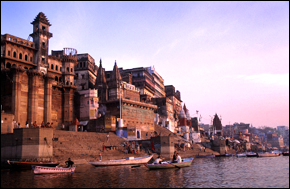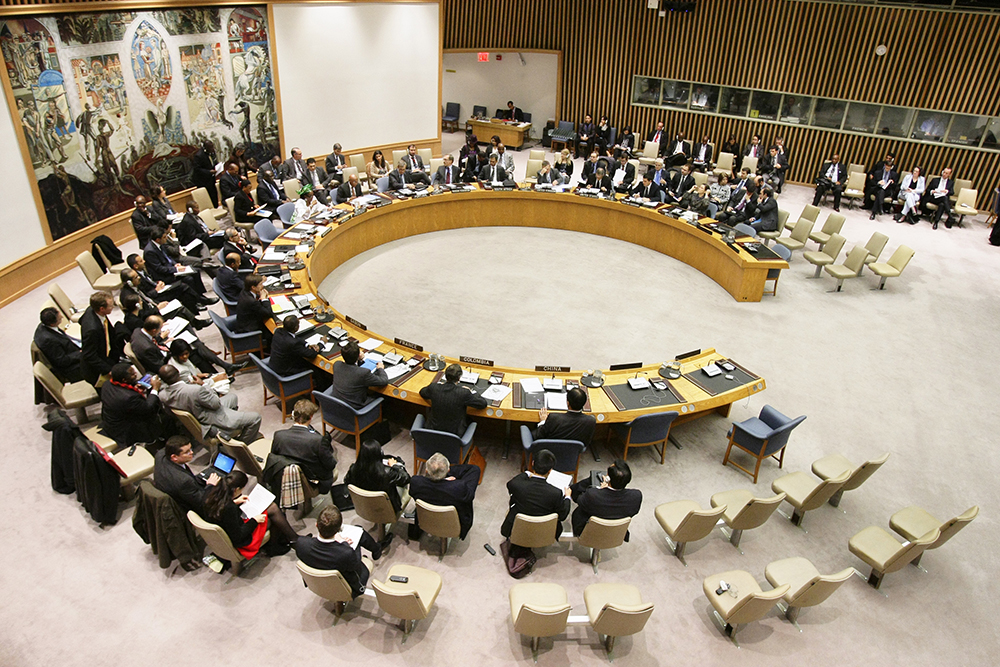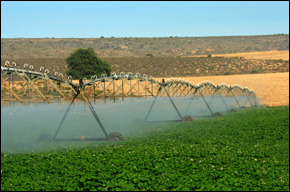India’s Leaders Argue Over River Linking Plan
 Indian government officials have given contradictory opinions on the $120 billion National River Linking Project. The project mitigates the effects of drought and climate change in India by connecting the country’s northern and southern rivers.
Indian government officials have given contradictory opinions on the $120 billion National River Linking Project. The project mitigates the effects of drought and climate change in India by connecting the country’s northern and southern rivers.
“The interlinking of [our] river system is something which can help in expanding area under irrigation. But there are also problems. There are environmental concerns,” India’s Prime Minister, Manmohan Singh, said at the Hindustan Times Leadership Summit this weekend, Outlook India reports.
“Expert opinion will be taken. I believe we have to move with caution,” the Prime Minister said, according to the Hindustan Times.
The Prime Minister’s cautious approval comes after other officials have backed away from the project. Jairam Ramesh, the Minister for Environment and Forests, said that the project would be a “human, ecological and economic disaster for the country,” the Assam Tribune reports.
“It is easy to do interlinking on paper,” Ramesh said, according to the Indian Express. “Interlinking of rivers has limited basin value, but large scale interlinking would be a disaster.”
Ramesh did say that smaller inter-basin projects could proceed safely.
The National River Linking Project (NRLP) was conceived in the 1982 by Indira Gandhi. The plans lay dormant until 2003 when a Supreme Court judge, acting on a lawyer’s petition, ordered that the project be revived and completed by 2016, though actual construction would take many decades more.
The project is designed to move 178 cubic kilometers of water from northern Himalayan rivers to the drier south via 30 diversion projects, which includes 3,000 storage reservoirs and 14,900 km of canals, according to a report by the International Water Management Institute. China’s similar inter-basin project, the South-North Water Transfer Project has a planned capacity of 48 cubic kilometers.
While the entire project may never be constructed, nine diversions are considered independent projects and could be implemented.
The 230-km canal connecting the Ken and Betwa rivers is the first section of the NRLP to commence construction. The $1.1 billion project is scheduled to be completed in eight years.
Opposition to the project comes from civil society groups, who worry about equity and displacement of peoples, and environmentalists, who argue that ecological damage will occur from insufficient dry season flows as large volumes of water are transferred.
Bangladesh, which is downstream, is concerned that some of the transboundary rivers will dry up because of the diversions.
Source: Outlook India, Hindustan Times, Assam Tribune
The International Water Management Institute has completed a three-year assessment of the NRLP.
The National Water Development Agency is in charge of planning for the NRLP.

Brett writes about agriculture, energy, infrastructure, and the politics and economics of water in the United States. He also writes the Federal Water Tap, Circle of Blue’s weekly digest of U.S. government water news. He is the winner of two Society of Environmental Journalists reporting awards, one of the top honors in American environmental journalism: first place for explanatory reporting for a series on septic system pollution in the United States(2016) and third place for beat reporting in a small market (2014). He received the Sierra Club’s Distinguished Service Award in 2018. Brett lives in Seattle, where he hikes the mountains and bakes pies. Contact Brett Walton








hi i was looking at articles online for compiling my seminar…
and i came across your page… it had all the key lines i had already read in articles on web during my research…
no doubt its an interesting and informative compilation…
i don’t want to comment on this article now.. i will reserve my comments for later…
will comeback after my seminar and comment on this article.
now to the point…
the name of our former prime minister Smt. Indira Gandhi has be spelled wrongly as Indira Ghandi.
kindly make note of the same and rectify the mistake.
thankyou.
As mentioned by our respected Prime Minister, a cautious approach
is necessary. But it should not mean that we shelve the Project as there are
several positives. Lot of negatives were said about the “Suez Canal” and
the “Panama Canal” also. But by now they are Historically 2 of the most
productive and useful projects whose benefits have been reaching millions
of people of many countries the world over. Hence a stage by stage approach
with a positive frame of mind is the urgent need of the hour as we have already lost much time and lot more water has flown down all these rivers during this
period.